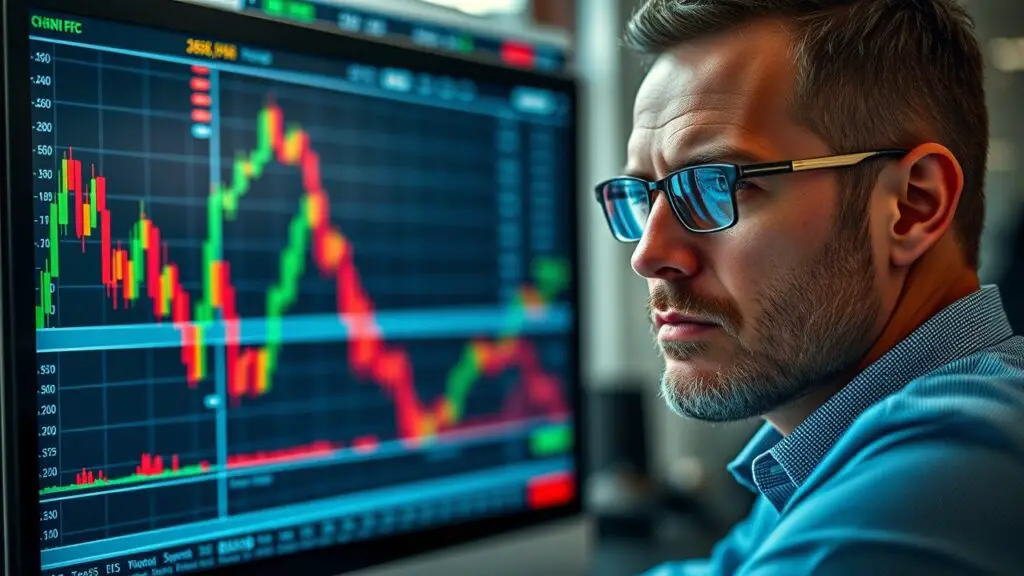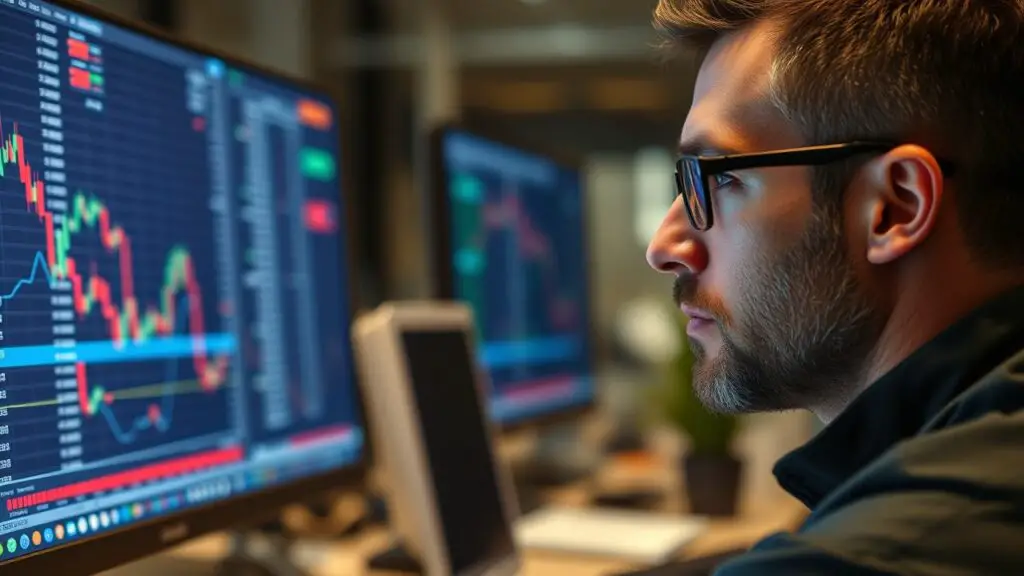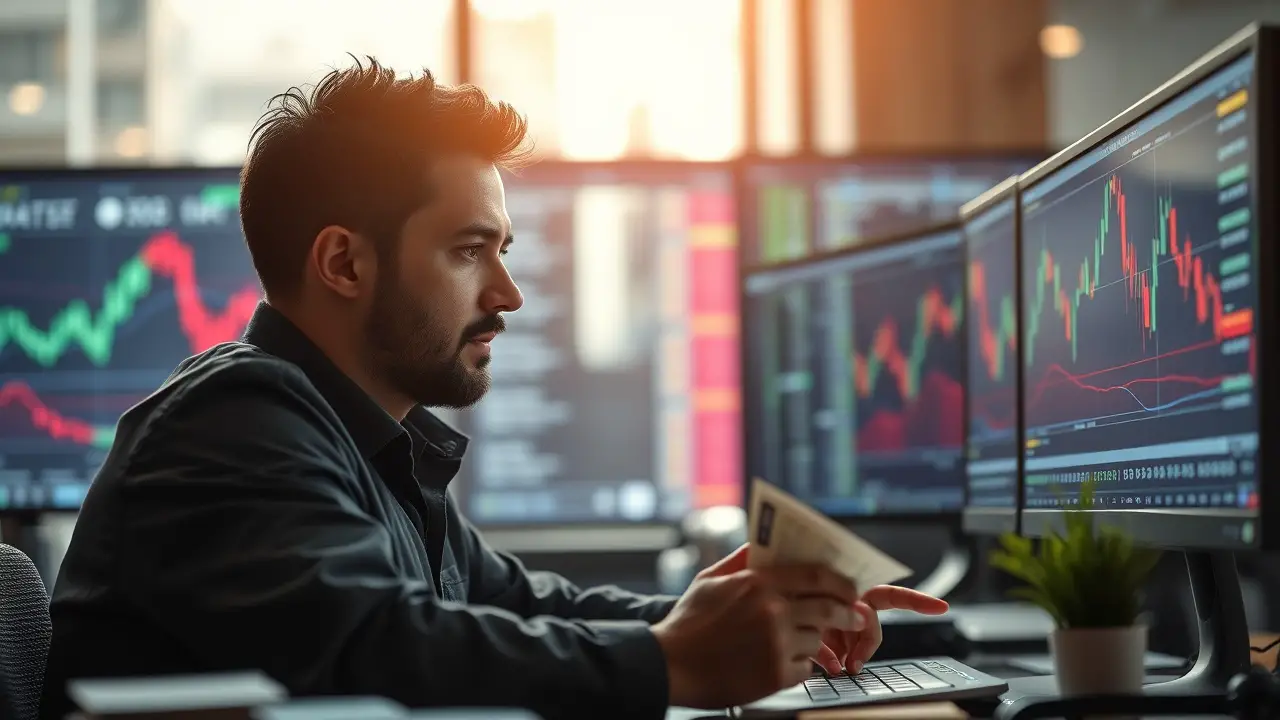Who is a trader and why does it matter? A trader is an individual or entity that engages in the buying and selling of financial instruments such as stocks, bonds, commodities, currencies, and derivatives in various financial markets. Traders can operate as individuals, working for financial institutions, or as part of a trading firm. Their primary goal is to generate profits by capitalizing on price movements in the markets.
Contents
The role of a trader is crucial in the financial markets as they contribute to market liquidity, price discovery, and efficient allocation of capital. Their activities have a significant impact on the overall economy and play a vital role in the functioning of global financial systems.

The Role of a Trader in the Financial Markets
The Provision of Liquidity
Traders play a crucial role in facilitating the buying and selling of financial assets, thereby ensuring the smooth functioning of financial markets. By providing liquidity, they enable the efficient trading of assets, ensuring that there are sufficient buyers and sellers.
Price Discovery and Risk Management
Through constant analysis of market information, traders contribute to price discovery, establishing accurate market prices. This, in turn, enables investors and businesses to make informed financial decisions.
Furthermore, traders engage in risk management activities, helping market participants hedge their exposure to various financial risks. By taking on these risks, traders reduce overall volatility, making it easier to plan and invest with more certainty.
Maintaining Market Efficiency and Stability
In summary, the contribution of traders to financial markets is vital for maintaining market efficiency and stability. By providing liquidity, facilitating price discovery, and managing risks, traders ensure that financial markets function smoothly, enabling businesses and investors to operate with confidence.

Understanding the Responsibilities of a Trader
Traders have a range of responsibilities that are critical to their role in the financial markets. They are tasked with conducting thorough research and analysis to identify potential trading opportunities and make informed decisions about when to buy or sell assets.
Additionally, traders must stay abreast of market developments, economic indicators, and geopolitical events that could impact asset prices.
This requires a high level of vigilance and adaptability to changing market conditions. Risk management is another key responsibility of traders. They must carefully assess and manage the risks associated with their trading activities to protect their capital and ensure long-term profitability.
This involves implementing strategies such as stop-loss orders, position sizing, and diversification to mitigate potential losses. Moreover, traders are also responsible for adhering to regulatory requirements and ethical standards in their trading activities.
They must operate within the boundaries of legal and ethical frameworks to maintain market integrity and investor confidence. For more information, visit Trader Joe’s.
The Impact of Traders on the Economy
The activities of traders have a profound impact on the broader economy. By providing liquidity to the markets, traders enable businesses to raise capital through the issuance of stocks and bonds, which in turn fuels investment and economic growth.
Additionally, efficient price discovery facilitated by traders ensures that assets are fairly valued, allowing businesses to make informed investment decisions and allocate resources effectively.
Furthermore, the trading activities of individuals and institutions contribute to the overall stability of financial markets. Traders help absorb excess supply or demand for assets, preventing extreme price fluctuations that could disrupt economic stability.
This function is particularly crucial during times of market stress or uncertainty when traders play a vital role in maintaining market order and preventing systemic risks from escalating.
Overall, the impact of traders on the economy is multifaceted, encompassing aspects of market efficiency, capital allocation, and risk management that are essential for sustained economic prosperity.

The Importance of Trading in the Global Economy
Trading plays a pivotal role in the global economy by facilitating the exchange of goods, services, and financial assets across borders. International trade allows countries to specialize in producing goods and services in which they have a comparative advantage, leading to increased efficiency and higher standards of living.
Moreover, trading in financial markets enables investors and businesses to access a diverse range of investment opportunities, diversify their portfolios, and manage financial risks on a global scale.
The interconnected nature of global trade means that trading activities have far-reaching implications for economic growth, employment, and international relations. The ability to buy and sell assets across borders fosters greater economic integration and cooperation between nations, leading to increased prosperity and opportunities for development.
Furthermore, trading in global financial markets promotes innovation and competition by providing access to capital for businesses and entrepreneurs worldwide. This fosters entrepreneurship, technological advancement, and economic dynamism, driving long-term sustainable growth in the global economy.
The Skills and Qualities of a Successful Trader
Analytical and Quantitative Skills
Analytical skills are paramount, as traders must be able to interpret market data, identify trends, and make informed decisions based on sound analysis. Additionally, strong quantitative abilities are crucial for evaluating risk-reward scenarios and developing trading strategies that are grounded in statistical evidence.
Risk Management and Emotional Discipline
Effective risk management skills are vital for successful trading. Traders must be able to assess and mitigate risks associated with their positions through prudent position sizing, diversification, and disciplined adherence to risk management principles. Emotional discipline is another key quality that sets successful traders apart.
The ability to remain calm under pressure, control impulses, and stick to a well-defined trading plan is essential for navigating the inherent uncertainties and fluctuations of financial markets.
Continuous Learning and Adaptability
Furthermore, continuous learning and adaptability are essential traits for successful traders. The ability to stay updated with market developments, embrace new technologies, and evolve trading strategies in response to changing market conditions is critical for long-term success in trading.
The Influence of Traders on Market Volatility
Traders can have a significant impact on market volatility through their buying and selling activities. High-frequency trading (HFT) strategies, algorithmic trading, and large-scale institutional trading can contribute to short-term price fluctuations and increased market volatility. These rapid price movements can create challenges for investors and businesses seeking stability and predictability in asset prices.
However, it’s important to note that not all trading activities contribute to volatility. Market makers, for example, play a crucial role in stabilizing markets by providing continuous bid and ask prices for assets, thereby reducing price gaps and preventing extreme price swings.
Moreover, traders can also act as stabilizing forces during periods of heightened volatility by providing liquidity and absorbing excess supply or demand for assets.
Their ability to step in during turbulent market conditions can help mitigate extreme price movements and restore market equilibrium.
Overall, while traders can influence market volatility through their activities, they also play a critical role in mitigating excessive volatility through their liquidity provision and risk management efforts.

My Conclusion
Ethical considerations are paramount in the world of trading as traders wield significant influence over financial markets and can impact the livelihoods of investors and businesses. Fairness, transparency, and integrity are fundamental ethical principles that guide responsible trading practices.
Insider trading, market manipulation, front-running, and other forms of unethical behavior are strictly prohibited as they undermine market integrity and erode investor trust.
Traders are expected to adhere to regulatory requirements and industry standards that promote fair and orderly markets. Additionally, ethical considerations extend to the treatment of clients and counterparties.
Traders are expected to act in the best interests of their clients, provide accurate information, and avoid conflicts of interest that could compromise their fiduciary duties.
Furthermore, social responsibility is an increasingly important aspect of ethical trading practices. Traders are encouraged to consider the broader societal impact of their activities, including environmental sustainability, social justice, and corporate governance practices when making investment decisions.
In conclusion, ethical considerations are integral to maintaining trust and confidence in financial markets while upholding the principles of fairness, transparency, and accountability in trading practices.












Leave a Reply